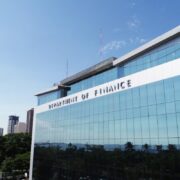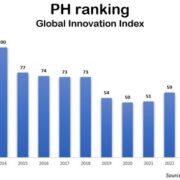
The National Government (NG) paid in full its outstanding P300 billion provisional advances to the Bangko Sentral ng Pilipinas (BSP) on May 20, well in advance of the 11 June 2022 actual maturity date.
The repayment fulfills the goal of Finance Secretary Carlos Dominguez III to unwind the pandemic-related liquidity support from the BSP before the start of the next administration.
The provisional advances is a temporary measure under Section 89 of Republic Act (RA) No. 7653 or The New Central Bank Act that allows the BSP to extend short-term financing to the NG in the amount of up to 20 percent of the latter’s average annual income in the past three years.
The grant of provisional advances had enabled the government steady access to cash for the uninterrupted delivery of large fiscal response and recovery measures despite the lower revenue collections and disruptions to financial markets experienced throughout the last two years.
With the sustained economic recovery and consequent strengthening of revenue collections last year, the volume of the provisional advances was downsized from P540 billion in 2021 to P300 billion in January this year, which is only half of the maximum available amount of P600 billion.
The early repayment was made possible by the sooner than expected return of the economy to its pre-pandemic strength.
Real gross domestic product (GDP) grew faster than expected in the first quarter of the year at 8.3 percent, helping NG attain revenue collections growth of 12.6 percent over the same period. With the strong revenue performance, the deficit only reached P317 billion, leaving the government at a strong cash position.
“The advance payment of the national government’s P300-billion provincial advances from the BSP underscores the continued strong fiscal position of the Duterte administration despite the financial challenges from the pandemic and, later, the Russia-Ukraine conflict. Its solid macroeconomic fundamentals–made even stronger by the game-changing reforms carried out by President Duterte during the COVID-19 crisis to further liberalize the economy and attract investors–will return the Philippines soon enough to its pre-pandemic path of rapid and inclusive growth,” Dominguez said.
Moreover, the government was already able to raise 35 percent of its full-year financing requirement of P2,212 billion at the end of March. The NG was able to raise P233 billion from loans and bonds in the external market and P549 billion through the issuance of government securities in the domestic market, despite the challenging financing conditions related to the normalization of global interest rates and spillovers from the military conflict between Russia and Ukraine.
The repayment of the P300 billion outstanding provisional advances culminates the pandemic-related financing assistance of the BSP and is part of a broader exit strategy from the accommodative policies that once helped the economy stay afloat but are no longer needed based on growing evidence that economic recovery is already firmly entrenched.
Initially, the advances were in the form of a zero-interest repurchase agreement (repo) transaction in the amount of P300 billion, granted in March 2020 and fully repaid in September 2020.
The provisional advances were then converted to a zero-interest 3-month loan in the amount of P540 billion, granted in October 2020 and fully repaid in December 2020.
The NG secured provisional advances again in January 2021, extended in April 2021, and fully repaid in July 2021. These were again accessed in July 2021, which was due in October 2021 and extended to January 2022, but was fully repaid in December 2021.
The latest access of provisional advances was in January 2022, which was due in April 2021 and extended to June 2022, but was fully repaid in May 2022.
The P300-billion provisional advances have similar terms as the earlier loans: (i) zero interest, and (ii) three-month maturity with another three-month extension.
Funds granted under this short-term lending arrangement serve as a liquidity gap measure that ensures the government will be able to undertake large spending in advance of anticipated revenue collections or regular borrowing proceeds.
–
Stay updated with news and information from the Department of Finance of the Philippines by visiting their website at dof.gov.ph.






